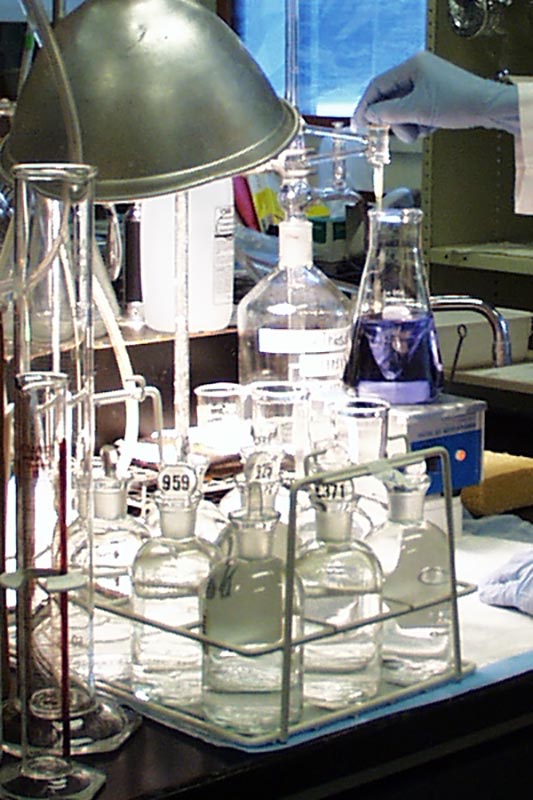Choosing an analytical laboratory
Sound science relies on sound lab results. In choosing an analytical lab it is important to consider the status of its accreditation, which methods are accredited, and what quality control, holding times, and proper dangerous waste disposals are in place.
Use the interactive map to find a lab
For advanced searching, see the Lab Search application.
For advanced searching, use the Lab Search database to find accredited labs or list of analytical methods.
Check accreditation status
Accreditation assures that a lab can conduct analyses according to prescribed methods. While it is not proof of the quality of all of their data, it means that the lab is capable of providing accurate, comparable, complete, and defensible data. If you need a lab to use a specific analytical method, confirm that the lab is accredited for the specific method you need.
We maintain several ways to make it easier to find an environmental or drinking water laboratory that is accredited for the analyses you need. See the links below to locate a lab in your area:
- Use our Lab Search database to find labs that are accredited for a specific analytical method or to list the specific analytical methods for any accredited lab.
- Use the interactive lap map to find labs.
- Use our printable lists of accredited labs.
If you have trouble finding an accredited lab, contact us.
See quality control tests
Expect the lab to report the results of quality-control tests, such as blank, standard, and duplicate samples, at no extra cost. Check both precision and bias estimates to judge whether the lab has done accurate work. Ask for results of quality-control tests done with the batch in which your samples were analyzed.
If there are any questions concerning interpretation of the control results, contact us.
Labs must meet holding-time requirements
Labs must be able to meet holding-time requirements for samples. Most labs provide a form to record the time a sample was taken and by whom. When the sample is delivered to the lab, the person receiving the sample should sign your form and return a copy showing the date and time the sample was received by the lab. The lab’s report back to you should show when the sample was extracted, if an organic analysis is being done, and when it was analyzed. This establishes that holding times were met and is essential in case the data is legally challenged.
Confirm that they manage their dangerous waste properly
Laboratories must properly manage dangerous waste. Ask the lab to certify that it will dispose of the samples according to existing regulations or return the samples to you for proper disposal.
Contact information
Rebecca Wood
Supervisor, Laboratory Accreditation Unit
rebecca.wood@ecy.wa.gov
360-742-7022


